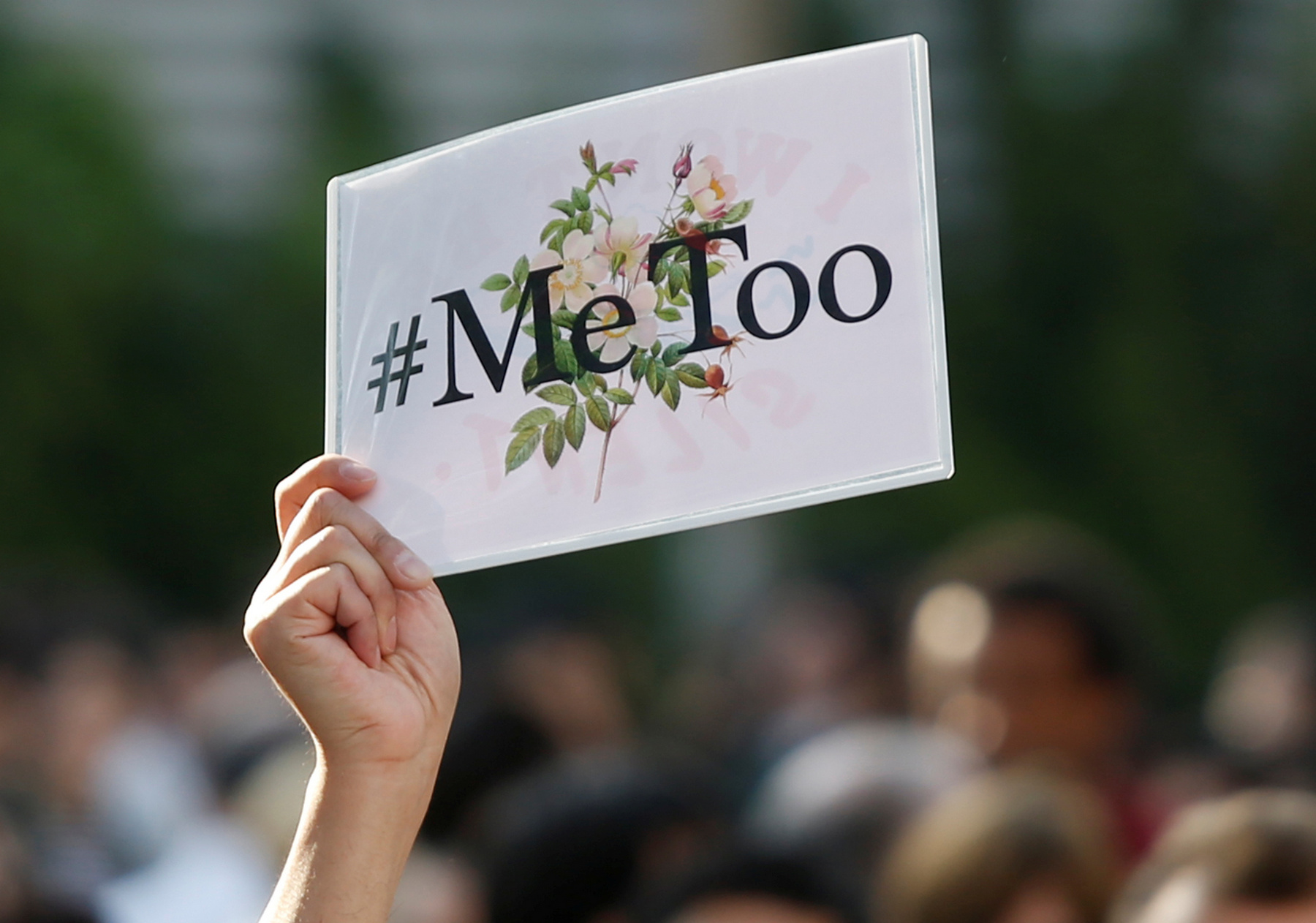Impassioned online debates around cases of sexual harassment, domestic violence, or racial slurs are labelled in Russia as “new ethics.” Despite the term being used mostly inside Russia, it is often understood that both the term and the entire debate is a transplant from Western media — a reaction to “woke” social movements active in the United States and some European countries.
Seeing it from that lens, Russia’s online reaction has generally been strongly negative. Indeed, opposition to the “new ethics” unites speakers who would otherwise disagree by default. Yet it is a mistake to think of these debates as entirely imported from the West. In fact, a deeper dive into the subject shows that the debate around “new ethics” has plenty of Russian exceptionalism.
A prominent opponent of the “new ethics” has been the theater director Konstantin Bogomolov. In a colorfully written manifesto (here it is in the original Russian or in an English translation), Bogomolov has criticized the new ethics as an ideology of the modern Western world. That ideology, according to him, is peddled by an “aggressive mix of queer activists, fem-fanatics, and eco-psychopaths.” “National Socialism is a thing of the past,” Bogomolov writes. “What we have now is a new, ethical socialism. Queer socialism … New Ethical Reich.” The director concludes by evoking an image of Russia finding itself “at the tail end of a train heading into a Boschian hell where we will be greeted by multicultural, gender-neutral devils.”
Bogomolov includes a lot of diverse phenomena under his “new ethics” rubric: cancel culture, prosecution for sexual harassment, younger people’s and minorities’ sensitivity to stereotyping, the rationalization of sexuality, and even the use of gender-marking terms in the Russian language (as in the controversial use of avtor and avtorka, a male and female author, respectively).
Bogomolov is far from being a lonely voice crying in the wilderness. Other opinion leaders regularly weigh in on the subject. The television channel Dozhd (TV Rain), the newspaper Kommersant, the opinion platform Republic.ru, Radio Liberty, the news site Meduza, and the Russian Forbes are among the liberal and independent media outlets that have provided platforms for participants in the debate.
Non-political media have also been interested in covering the controversy. The fashion magazine Harper’s Bazaar Russia titled its September 2020 issue “The New World—the New Ethics.” The subject is often brought up on the Russian-language YouTube, which is, incidentally, almost the only channel for independent “television” in today’s Russia, and on the Russian Facebook, where intellectuals constantly bicker with each other over the new ethics. So important is the theme that Russia’s largest book fair called its theme of 2020 “the new ethics”.
On these platforms, the new ethics is often discussed in even broader terms than Bogomolov does in his piece. The concept seems to include a new wave of Russian feminism, discussions of personal boundaries and trauma, policies of inclusion, gender quotas, identity politics, new forms of romantic relationships and partnerships, protests against racism, LGBT+ activism, and sometimes any kind of collective action. The term itself seems to be applied to anything that Russian society perceives as new. It is often taken to be foreign and socially alien to the Russian culture.
Where Did the Concept Come From
One of the sources for Russia’s new ethics is the “new morality” debate among the American and European Christian circles of the 1970s and 1980s. Feminists and the LGBT community of the time opposed “traditional Christian morality,” calling for more openness and inclusion. Those discussions reached the Russian public sphere after a long delay. It did not happen immediately that a single concept, a single turn of phrase, was found for all those topics in Russian.
Until 2018, the concept was in flux. For example, it was used to discuss bioethics or the ethics of online communication. The popular sex life blogger Arina Kholina associated the term “new ethics” with sexuality, emancipation, and romantic relationships. In the second half of the 2010s, her texts about the “new dating ethics” or “new sexual ethics” were published in various media. In 2017, the magazine Afisha launched a section dedicated to the new ethics, with articles on harassment cases. Those publications saw the new ethics as something positive and progressive. The theme took on all its negative connotations only later, in the second half of 2019 and early 2020.
In March 2019, on the website of Vesti.ru, which belongs to the Russian state-owned company VGTRK, a note appeared titled “New Ethics Cancels Shame.” The article described a real-life story in one of the Moscow schools, where a group of students were shamed for being late for classes. Their teachers posted an announcement about their misbehavior on an information board, which caused a protest among the students. The teenagers painted over the announcement with phrases like “School is a GULAG,” photographed it, and posted those pictures on social media.
The action was followed by an active online discussion by students, teachers, and school administrators—even parents of children in other schools and other cities. In the article on Vesti.ru, the situation is brilliantly framed: it turns out that the unwillingness to be ashamed and the protection of schoolchildren in this case were a problem of the “new ethics” and an instantiation of “ethics of identity.” The article’s anonymous author characterized the new ethics as a manipulation of the concepts of human rights and minority rights.
The Vesti.ru article mentioned the German Israeli psychoanalyst Erich Neumann and his book Depth Psychology and a New Ethics (1949). That book’s title is another source for the concept in the Russian debate, although Neumann’s new ethics had little to do with today’s Russian understanding of the term and was interpreted in a positive light in the book. Neumann believed that the old (for example, religious) ethics could be characterized by a division into “black” and “white”, “good” and “bad.” A person in this ethical system has to suppress the dark side in himself, but at the same time he projects it to other people who he or she considers “evil”. This view reinforces destructive tendencies and conflicts in the society. The “old ethics,” as Neumann believed, should be replaced by a new one, characterized by a more complex understanding of human nature and a recognition of our negative sides.
In addition to Neumann, the Vesti.ru article’s author introduced sympathetic references to Natalia Kholmogorova, emphasizing that this particular author began to investigate the “bad consequences” of the “new ethics.” Natalia Kholmogorova is a Russian nationalist, one of the organizers of the nationalist Russian Marches that attracted some following in the 2000s. For more than fifteen years she has been fighting Russophobia. Among the figures whom Kholmogorova supported were Nikita Tikhonov and Yevgenia Khasis, convicted murderers of the lawyer Stanislav Markelov and the journalist Anastasia Baburova, both antifascist activists. During the trials, Kholmogorova and her comrades-in-arms publicly defended Tikhonov and Khasis.
The case shows how the concept of a new ethics in fact originates in a debate on Russia’s state-run media, as well as in ultraconservative and nationalist circles. Ideologues of the new ethics include not only Kholmogorova but also such conservative authors as the philosopher Leonid Ionin (author of Political Correctness: A Brave New World) and the lawyer Igor Ponkin, who wrote numerous articles about the modern “subversive ideology of amoralism” and the “depraving” influence of the LGBT community and the need for legal protection of morality in Russia.
Russia’s other state-run media, including RT and Channel One, then descended on the subject. It was only later that some Russia’s liberal intellectuals and independent media picked it up too. Interestingly, the liberals failed to see the concept’s connection to state ideology and interpreted it as a Western import. They took it up as a term to describe the West’s culture of excessive political correctness, which they often compared to Soviet practices of old.
Russia’s Liberals and Conservatives Have a Lot in Common
An ideological conversion between significant parts of Russia’s liberal opposition and the Kremlin regime’s conservative supporters seems improbable, but the new ethics has provided a unique platform for such an alignment, the Russian writer Kirill Kobrin explained.
It seems that the Russian elites on both sides of the barricades have found and named a common enemy. Their disagreements elsewhere become less important in this fight. The new concept absorbs and renders the many fears and frustrations of the late Soviet Union’s intellectuals: their lack of a clear vision for the country’s future, their struggle for sexual liberation in the 1990s, and, connected to that, their misunderstanding of the feminist agenda and other emancipatory agendas. Those old frustrations align well with the state propaganda’s anti-Westernism and the ultra-right’s traditionalism. It also seems to reflect the specifics of Russian imperialism and colonialism. There is no place for the voices of the minorities in contemporary Russia, but there is a place for an imagined “West,” which appears to be the source of both coveted ideals and bitter disappointment.
The exploration of the concept of the new ethics is an interesting exercise in the history of ideas. At the same time it seems to be quite a disturbing phenomenon for the Russian public sphere. The new ethics is an emotionally and ideologically charged umbrella term that has been constructed right in front of our eyes. It creates a new moral panic and prevents any consistent discussion of serious problems, from women’s rights to Russia’s persistent racism. Meanwhile, these problems warrant much more attention from Russian intellectuals.










